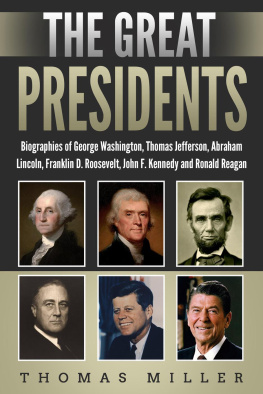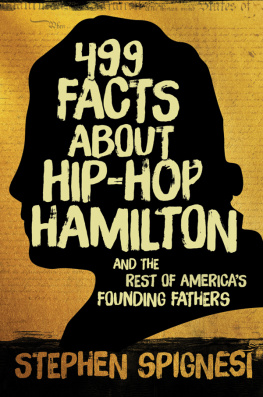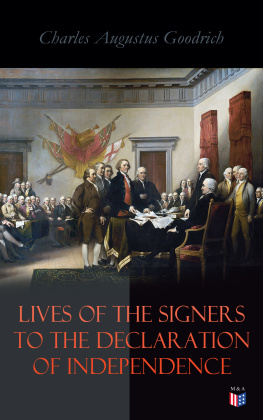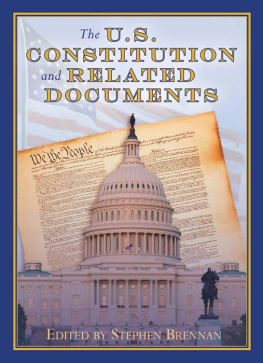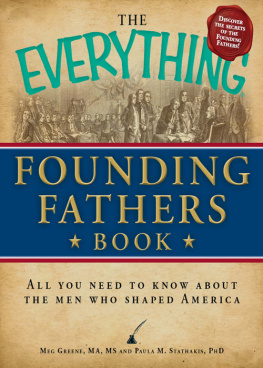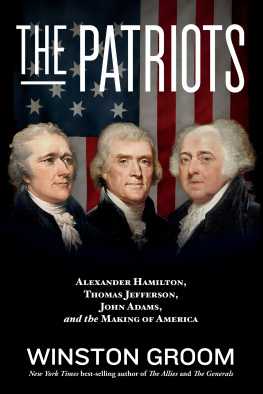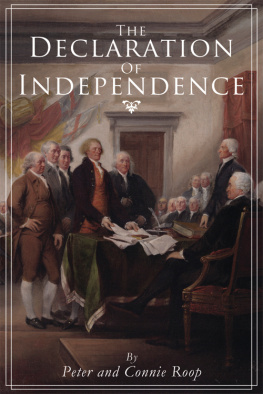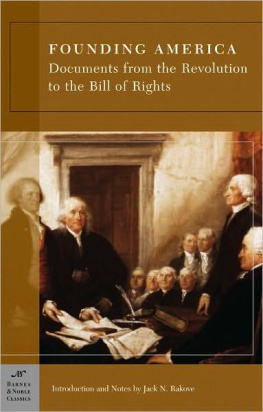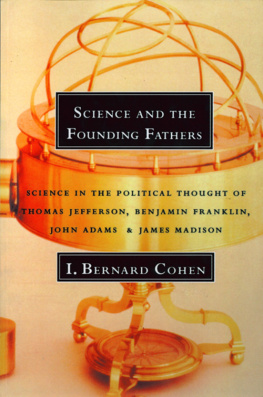Table of Contents
L. Carroll Judson, John Jay, Helen M. Campbell, Emory Speer
FOUNDING FATHERS The Men Behind the Revolution: Complete Biographies, Articles, Historical & Political Documents
John Adams, Benjamin Franklin, Alexander Hamilton, John Jay, Thomas Jefferson, James Madison and George Washington
Madison & Adams Press, 2017. No claim to original U.S. Government Works and to texts licensed as Creative Commons CC BY-SA 3.0.
Contact
ISBN 978-80-268-7730-1
This is a publication of Madison & Adams Press. Our production consists of thoroughly prepared educational & informative editions: Advice & How-To Books, Encyclopedias, Law Anthologies, Declassified Documents, Legal & Criminal Files, Historical Books, Scientific & Medical Publications, Technical Handbooks and Manuals. All our publications are meticulously edited and formatted to the highest digital standard. The main goal of Madison & Adams Press is to make all informative books and records accessible to everyone in a high quality digital and print form.
Biographies
John Adams

Genuine moral courage is a sterling quality that ennobles and dignifies the man. It invigorates the mind like an impregning cloud shedding its gentle dews on the flowers of spring. It is a heavenly spark, animating the immortal soul with the fire of divinity that illuminates the path of rectitude. It is an attribute that opposes all wrong and propels its subject right onward to the fearless performance of all right. It is based upon virtue and equity, and spurns vice in all its borrowed and delusive forms. It courts no servile favours it fears no earthly scrutiny. No flattery can seduce it, no eclat can allure it, no bribe can purchase it, no tyrant can awe it, no misfortune can bend it, no intrigue can corrupt it, no adversity can quench it, no tortures can subdue it. Its motto is Fiat justitia, ruat clum. [Let justice be done though the heavens should fall.] Without it, fame is ephemeral and renown transient. It is the saline basis of a good name that gives richness to its memory. It is a pillar of light to revolving thought, and the polar star that points to duty and leads to merit. It is the soul of reason, the essence of wisdom, and the crowning glory of mental power. It was this that influenced the signers of the declaration of independence and nerved them for the conflict.
No one among them was more fully imbued with it than John Adams. He was a native of Quincy, Massachusetts, and born on the 19th of October (O.S.) 1735. He was the fourth in descent from Henry Adams, whose tomb bears this singular inscription He took his flight from the dragon persecution, in Devonshire, England, and alighted, with eight sons, near Mount Wollaston. In childhood the career of John Adams was marked with a rapid developement of strong intellectual powers, which were skilfully cultivated by Mr. Marsh, at Braintree, a celebrated and successful teacher. At the age of sixteen years he entered Harvard College, at Cambridge, where he became a finished scholar and graduated at the age of twenty. He gained a high reputation for frankness, honesty and untiring industry, and was greatly esteemed by the professors and his classmates.
From college he proceeded to Worcester, commenced the study of law under Mr. Putnam, and finished with Mr. Gridley, supporting himself in the mean time by teaching a grammar class. At that early age he possessed wisdom to perceive right, and moral courage to pursue it. In view of the past and present, he made a philosophic grasp at the future, as will appear from the following extract from a letter written by him on the 12th of October, 1755, shortly after he took up his residence at Worcester.
Soon after the reformation a few people came over into this new world for conscience sake. Perhaps this apparently trivial incident may transfer the great seat of empire into America. It looks likely to me, if we can remove the turbulent Gallics, our people, according to the exactest computations, will, in another century, become more numerous than England herself. Should this be the case, since we have, I may say, all the naval stores of the nation in our hands, it will be easy to obtain the mastery of the seas, and then the united force of all Europe will not be able to subdue us. The only way to keep us from setting up for ourselves is to disunite us. * * * Keep us in distinct colonies, and then some men in each colony, desiring the monarchy of the whole, will destroy each others influence and keep the country in equilibrio.
This broad and expansive view of the future, conceived by a youth, was very remarkable. He saw the one thing needful to render our nation powerful the creation of a navy for which nature has given us all the stores. The paralysis that pervades our government in its naval improvements has long astonished the nations of the old world, and a few of our own statesmen. The time will arrive when our country will be made to feel most keenly that a navy is the right arm of defence.
After pursuing his studies three years, Mr. Adams was admitted to the practice of law. He then commenced his professional career at Braintree. Questions of constitutional right and law had already become the subject of investigation and a root of bitterness between the colonists and the officers of the crown. The latter, that were engaged in the custom-house, claimed unlimited power to search the private dwellings of all persons whom they suspected of having dutiable goods. This suspicion, or pretended suspicion, often arose from personal animosity, without a shadow of evidence or reasonable cause. The right of search was of course resisted as arbitrary, unconstitutional and assumed. This led to an application to the superior court for writs of assistance, which may be considered as one of the first germs of the revolution. Mr. Gridley, who had led Mr. Adams to the bar, and was then his friend and admirer, maintained the legality of the proceeding, not upon the ground of constitutional law, but from the necessity of the case in order to protect the revenue. Mr. Adams took a deep interest in the question, which was finally argued before the superior court at Boston, by Mr. Gridley for the crown and Mr. Otis for the people. In listening to the latter gentleman, a fire of patriotism was kindled in the bosom of Mr. Adams, that death alone could extinguish. He asserted in after life, that Mr. Otiss oration against writs of assistance, breathed into this nation the breath of life. * * * American independence was then and there born. * * * Every man of an immense crowded audience appeared to me to go away, as I did, ready to take up arms against writs of assistance. Then and there was the first scene of the first act of opposition to the arbitrary claims of Great Britain.
The court publicly decided against the writs, but secretly issued them. That people had their houses searched to satisfy revenge, will appear from the following described incident.
Mr. Justice Wally had called Mr. Ware, one of the persons in possession of such a writ, before him, by a constable, to answer for a breach of the Sabbath-day acts, or for profane swearing. As soon as he had finished, Mr. Ware asked him if he had done. He replied yes. Well, then, said Mr. Ware, I will show you a little of my power. I command you to permit me to search your house for uncustomed goods and went on to search his house from garret to cellar and then served the constable in the same manner.
We can readily imagine the natural consequences of such a procedure, against which Mr. Adams at once took a bold and decided stand. The assembly also interfered in behalf of the people, and in 1762 prepared a bill to prevent these writs from being issued to any but custom-house officers, and to them only upon a specific information on oath which bill was vetoed by the governor. As a blow at the royal authority this was well aimed, and showed a disposition in the members to do the will of their constituents. As a retaliative measure they reduced the salary of the judges.


